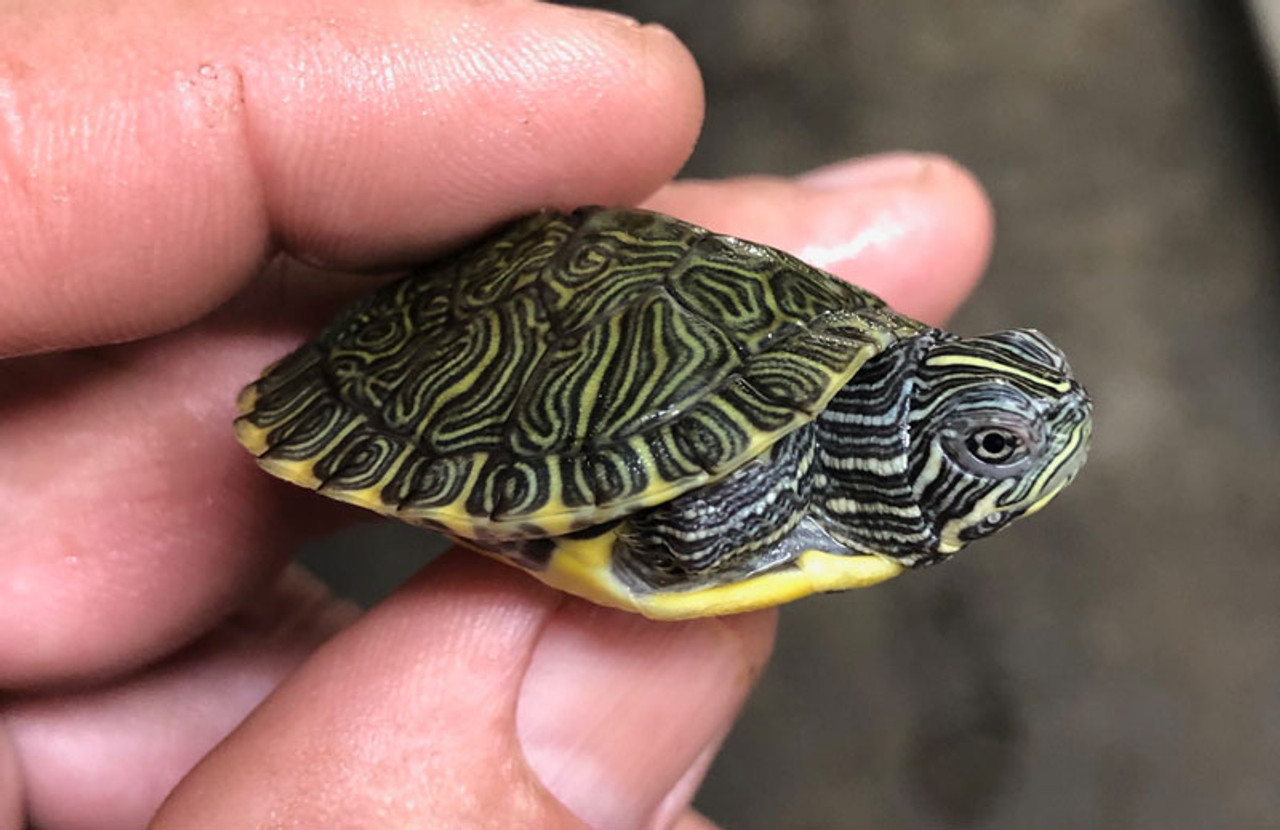Product Description
Overview:
River Cooter Turtles are medium to large freshwater turtles native to rivers, streams, and ponds in the southeastern United States. Known for their attractive shell patterns and active nature, they are excellent swimmers and love basking in the sun. River Cooters thrive in spacious enclosures with plenty of room to swim, bask, and explore.
Quick Facts:
- Size: Males 9-12 inches; females 11-16 inches.
- Lifespan: 20-40+ years with proper care.
- Temperament: Peaceful and social; may coexist with other turtles of similar size and temperament.
- Activity Level: Highly active swimmers and avid baskers.
- Diet: Primarily herbivorous as adults, though juveniles eat more protein.
Fun Facts:
- The name “cooter” is derived from the West African word “kuta,” meaning turtle.
- River Cooters are fast swimmers and can often outpace predators in the wild.
- Their beautiful, intricately patterned shells make them a favorite among turtle enthusiasts.
B Grade Turtles may have minor imperfections or defects that make them less desirable than A Grade Turtles. These issues can include shell imperfections, nipped tails, missing nails, missing eyes, or missing feet (forefoot or hindfoot), among others. Because of these conditions, they are sold at a discounted price.
Please note that B Grade Turtles are not eligible for our Arrive Alive or 7-Day Health guarantees.





